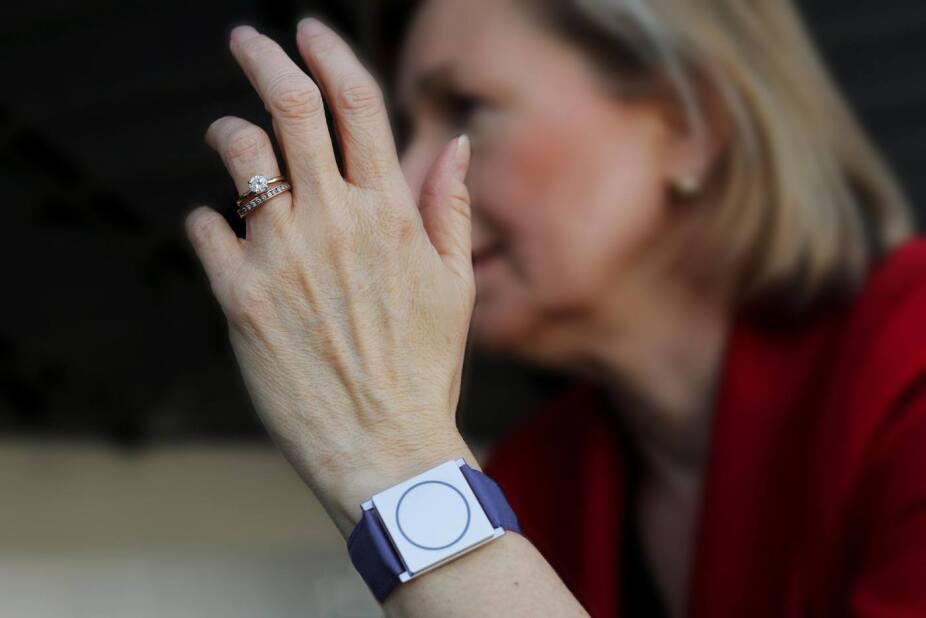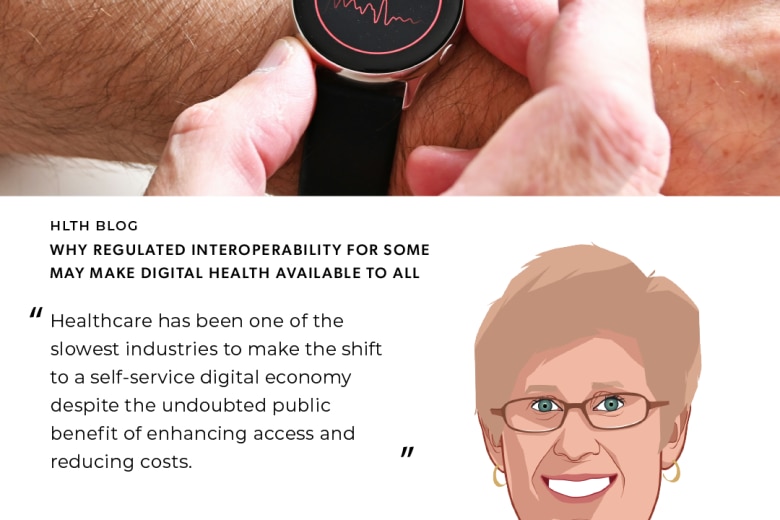I was honored to discuss the future of artificial intelligence with
Rosalind Picard in advance of her speaking role at the InterSystems Global Summit. A pioneer in artificial intelligence, Dr. Picard invented the field of affective computing (and even coined the term). In describing her journey, Picard says this:
“After going through all of that, you just realize science is about trying to figure out what is TRUE—even if it makes us uncomfortable.”
There are three important takeaways that scientists need to know from Rosalind Picard: find truth even when it is uncomfortable, let patients tell you where to look, and fight back against disease.
Affective Computing: The Uncomfortable Truth
How did Picard come to invent affective computing? As she was looking to build computers that mimicked actual brain function Picard discovered the work of Richard Cytowik. His book, The Man Who Tasted Shapes describes synesthesia, a condition where people might taste a shape or see colors when they hear music. Researchers looked at that brain activity. Parts of the brain responsible for emotion, memory and attention lit up. The cortex, viewed as the center of most research at the time, was shutting down.
This filled Picard with dread: emotion might play an important role in cognition. To suggest emotion mattered might ruin her credibility as a “serious” female scientist. Picard decided “I’m going to bring the tools of engineering to this, and bring rigorous robust measurement, and we’re going to see if there is something real here--because it sure looks like there might be.”
Measuring emotion objectively involved serious testing. Picard created the first machine learning to recognize emotional states. In her book Affective Computing, she first put those words together, starting a field of computer science. From its inception in 1992 to present day, the field of affective computing has gone from a potentially embarrassing theory to an accepted and sought after field of research.
“We now know that what we thought might be important really is important, that it can be measured in more objective ways, and that it can help machines be more intelligent.”
Picard and her research colleagues are learning that emotions can have huge implications for health: physical health, mental health, relational health, and social-emotional health; these are all interconnected. They are trying to build out technologies that truly help people with these issues, as opposed to “ones that just make AI really smart,” says Picard.
Autism and Affectiva: Listen to The Patient
Picard has pioneered wearable technology that can help manage seizure risk and facilitate better understanding of emotions. It started with trying to understand the autism spectrum better. One day one of the patients said to her:
“Roz, my biggest problem is not with other people's emotions--the problem is that you are not reading MY emotions. You are not reading my stress. I am having enormous stress and anxiety; you guys are missing it.”
The sensory tools Picard had already developed could measure stress, but the sensors weren’t portable. As she learned about the overload autistic patients were experiencing, she realized the lab atmosphere was too stressful for great measurement. A jumble of wires couldn't reasonably be attached to a kid all day in school. They wouldn’t be able to wash their hands, or jump on the trampoline and run around the playground.
“We need to put a lab where they are.” And the “lab” must be comfortable to wear. Think baby socks or bras.
As they built technology into wearables, Picard and her team got jaw-dropping data on everything from seizures to new neural patterns. Picard now reflects that her patient’s simple statement about being understood led to breakthroughs she experienced, and the work she is doing now in neurology patients with epilepsy, forecasting mood and stress and health. If she and her team hadn’t been directed where to look, they would have never thought discoveries of this magnitude were possible.
Precision Medicine For Depression: Curing the Suicide Epidemic
Rosalind Picard has a mission - trying to help turn the tide of the epidemic of depression and suicide. Current rates are on track to be the number one disease burden in the U.S., taking more lives and costing more long-term disability than cancer.
Picard and her team are developing AI to help us do the things we're not good at, that help us feel better - do things that matter, have better relationships, sleep better, and take better care of ourselves and others. This knowledge will ideally help prevent as many as 80 percent of depression cases.
That seems a little like “yes sure you're going to stop this huge tide,” but when we break it down and look at the things that we can measure with these devices, we have a lot of knowledge and technology can fight back.
At first smart devices could only track mood and predict if it would get worse or better. Data like that is insufficient to turn the tide of the suicide epidemic; it’s like weather forecast in Boston. It’s going to be bad. Hearing that tomorrow is going to be a “bad day” based on your specific data is not going to help; the data must be useful for improving the quality of your day.
The wearables they are working on now can tell people what the evidence from their personal data shows, and suggest actions throughout the day - calling a good friend, having a snack, going for an energizing run, or going to bed earlier if you’re sleep deprived. These small actions could result in big improvements in health and mood. Knowing what will help and when it helps is the dream. Health, sleep, and emotion are becoming an integral part in healing the mental health crisis we are faced with.
I personally hope Picard is able to realize the ideal of improving mental health and giving patients the ways they can improve their health. The risks she took in exploring what she thought was true, even though it was unpopular, will benefit more patients as they understand what is true, what is not understood, and what they can do about it.
About the Author

Janae Sharp is a physician suicide loss survivor and the Founder and CEO of Sharp Index, a nonprofit dedicated to better physician mental health. Her work includes healthcare data and analytics marketing to improve healthcare outcomes for the underserved. Janae can code, and enjoys making communication easier in tech production, but her true passion is in matchmaking companies to create elegant health IT systems and improve health. She has worked with interoperability and social determinants of health and is an expert on patient and physician engagement. Janae has three children, enjoys learning, hiking, triathlon, and quilting. Follow Janae Sharp on Twitter: @CoherenceMed.




































